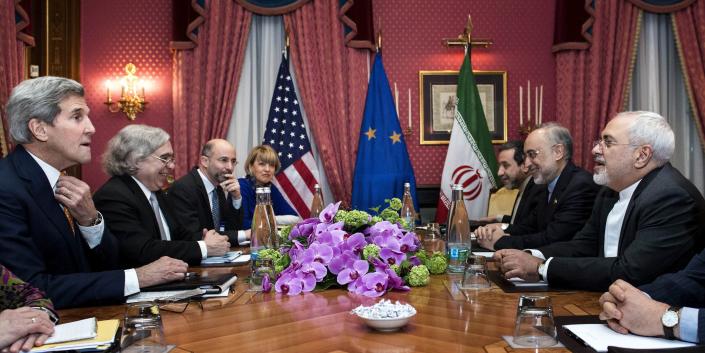
-
A million barrels of oil could come to market if the US and Iran resuscitate the 2015 nuclear deal.
-
An agreement could lessen the pain as EU bans on Russian oil products set to kick-in by year-end.
-
But it’s not a quick fix: “It’s not a light switch. It’s a potentially multi-month process,” RBC’s Helima Croft said.
A million barrels of oil could be added to the global energy market if the US and Iran resuscitate the dead nuclear deal from 2015 – but even if they do, it won’t be the “light switch” fix to a global energy crunch, RBC commodities chief Helima Croft said.
The US withdrew from the deal in 2018, which involved Iran agreeing to have its nuclear activity limited and inspected in exchange for temporary exemptions from international sanctions.
The exemption previously allowed Iran to sell its oil on the global market – which is why US and Iranian officials have been seeking to revive it as the world deals with an energy crunch stemming from Russia’s tightening of its energy exports to the global market.
US and Iranian officials discussed the matter over the past week, and the European Union announced on Monday that it put down the “final” text of the deal, Reuters reported, meaning Iran will have to agree to all of the terms or turn down the package entirely.
If a deal is hammered out, it would represent a major victory for Europe, which is facing a potential emergency this winter as it deals with shortages of natural gas. It would also lessen the pain when EU bans on Russian oil products fully kick in on December 5, which would slash another 2.2 million barrels of oil off the market, Croft said.
But even then, bringing Iranian supply to the market won’t be the quick fix some are hoping for.
“The question with Iran is, do Iranians leaders want to take this deal?” Croft said in an interview on CNBC, noting that US and Iranian leaders came close to reaching an agreement in March of this year before Iran backed out.
She noted Iran has been negotiating to have a US investigation on prior nuclear weapons dropped, and for the country to receive permanent exemption from international sanctions, although Croft said there was “no way” President Biden would fulfill the second promise.
The deal will also need approval from Congress as well as Iran, meaning it’s still far from having any sort of effect on Europe’s energy crisis.
“It’s not a light switch. It’s a potentially multi-month process,” Croft said. “But again, with those Russian barrels in the balance come December, additional supplies from Iran would be helpful.
Read the original article on Business Insider




